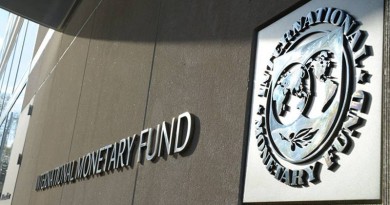Chinese ride-hailing giant Didi shuts down operations in SA
Chinese ride-hailing giant, Didi Chixung, announced that it would be ending its operations in South Africa. This is coming only a year after it launched in the country, marking its entry into the continent. The ride-hailing company, which claims to have over 500 million customers, has operations in 16 countries, including Russia and Australia.
“We have made the difficult decision to end our operation in South Africa from April 8,” a Didi South Africa spokesperson said to TechCrunch. “Our aim has been to ensure a smooth transition for all and [we] would like to take this opportunity to thank our employees, drivers, riders, and partners for the kindness and support shown to DiDi.”
Didi’s entry into the South African market was expected to increase the competition with Uber and Bolt, dominant ride-hailing companies in that region and across Africa. It appears, though, that DiDi has had a rough time competing with these platforms. At the time of its launch, Uber controlled 71% of South Africa’s e-hailing market, and Bolt controlled 28%. While Didi launched with avariety of incentives including lower commission fees for drivers, and ride-sharing options for riders—the platform didn’t see much growth.
Two months after Didi’s launch, South Africa was also hit by its third COVID wave, which prompted yet another lockdown as the country recorded nearly 12,000 infections per day. An incident that affected movement and ride bookings.
DiDi is the second-largest ride-hailing company, second only to Uber. While Uber has an $80.5 billion market value, DiDi is next with $21 billion. The ride-hailing company hinted that its exit from the South African market will enable it to focus on other markets where it can make a more positive impact. Based on Didi’s previous hiring announcement, it’s expected that it’ll launch operations in Nigeria.
“We have re-evaluated where we can make the most positive impact in the short-term and are focusing on developing even deeper capabilities in other existing markets,” the SA spokesperson said.
Despite Didi’s growing dominance in the ride-hailing scene, there are questions around whether it can continue its global expansion as it feels the ripple effects of increased regulatory pressure at home.
Last year, Didi’s much anticipated US IPO was blundered after the Cyberspace Administration of China (CAC) announced that it was investigating Didi’s handling of customer data and ordered the removal of the app from mobile app stores in China. Since then, the ride-hailing company’s shares have fallen more than 80% below its IPO price. Didi also delayed plans to expand to Britain and Europe, partly due to political and regulatory challenges.
However, in March 2022, the Chinese government made an about-turn, stating they were prepared to support foreign-listed stocks—the very policy that has sent DIDI’s US shares down by a large degree. A move that hints at the possibility that DiDi’s regulatory constraints might be easing up.




